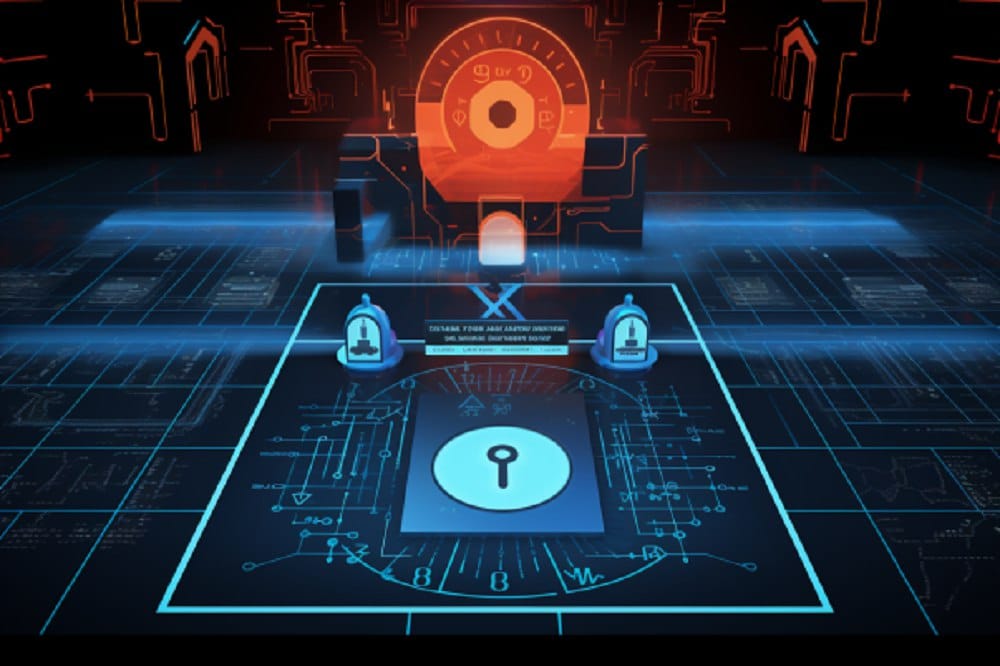The innovative idea of Zero-Knowledge Proofs (ZKPs) in cryptography enables one party to establish the integrity of a proposition without disclosing any sensitive information. When confidentiality must be protected, like in financial dealings, electronic voting, and identity verifications, this cutting-edge technology shines.
Defining Zero-Knowledge Proofs
In cryptography, ZKPs are protocols for proving to another party that one knows some secret information without actually sharing that information. They do little more than verify the data’s integrity, leaving readers in the dark. For instance, a ZKP might use a government-issued ID to authenticate a person’s identification without requesting a copy. It might also demonstrate familiarity with a mathematical answer without disclosing that solution. Consequently, ZKPs are cutting-edge technology that balances openness, safety, and customer data ownership.
History of ZKPs
In 1985, Shafi Goldwasser, Silvio Micali, and Charles Rackoff introduced the idea of zero-knowledge proofs in a paper titled “The knowledge complexity of interactive proof-systems.” Their experiments showed that it is possible to prove familiarity with a secret via interactions between the prover and the verifier without disclosing the secret. The Fiat-Shamir protocol, introduced in the 1990s, was the most prominent method for transforming interactive zero-knowledge proofs into their non-interactive counterparts. Succinct Non-Interactive Arguments of Knowledge (SNARKs) arose in the 2000s, providing a compact and fast process of producing and verifying cryptographic proofs. Scalable Transparent Arguments of Knowledge (STARKs) were created between 2016 and 2018 to improve the scalability and openness of reasoning.
What Role Do ZKPs Play?
In the procedure of ZKPs, a prover-verifier interactive challenge-response mechanism is used. The prover creates a cryptographic commitment to keep the secret information hidden while still mathematically relating to it. After receiving a random challenge from the verifier, the prover must provide evidence that they know the information without revealing it. If the answer is correct, the verifier will be persuaded that the prover knows something secretly. The procedure is carried out several times with more random tasks to reduce the possibility of fraud.
Zero Knowledge vs. Zero Trust
In cryptography, “zero-knowledge” refers to proofs that may be verified without revealing the underlying facts. Privacy may be protected even when authentication and validation are taking place. When it comes to cybersecurity, zero trust is a larger strategy that takes the position that no user or device should be trusted. Resource access must be continuously authenticated and authorized under the zero-trust approach.
Use Cases of ZKPs
ZKPs boast several notable applications, such as:
- Anonymous Transactions: Digital currencies like Zcash employ ZKPs to mask transaction specifics.
- Decentralized Identity Verification: ZKPs facilitate identity confirmation while safeguarding user privacy.
- Authentication: Individuals can prove their identity without disclosing passwords or personal details.
- E-Voting: Vote tallies can be confirmed without revealing individual votes.
- Result Authentication: Blockchains like Ethereum employ ZKPs to authenticate off-chain computation outcomes.
- Finance: Financial institutions can validate confidential client data without accessing private information.
Advantages and Disadvantages of ZKPs
ZKPs present numerous benefits, including enhanced privacy through data concealment, strengthened cryptographic security during data validation and authentication, the possibility for novel use cases due to emerging privacy standards, and models like STARKs that negate the need for third-party trust.
Nevertheless, ZKPs also come with potential downsides. The generation and verification of proofs can be resource-intensive, specialized equipment is necessary, increasing deployment costs, auditing, and debugging become more complex, heightening vulnerability risks, and some models, such as SNARKs, still depend on trust setups.
Conclusion
Zero-knowledge proofs represent a significant breakthrough in cryptography in recent years. They enable the verification of assertions and credentials without revealing the sensitive data underneath. Despite hurdles related to efficiency and trust, zero-knowledge proofs are anticipated to see broader adoption, granting users increased control over their information.
At Tokenhell, we help over 5,000 crypto companies amplify their content reach—and you can join them! For inquiries, reach out to us at info@tokenhell.com. Please remember, cryptocurrencies are highly volatile assets. Always conduct thorough research before making any investment decisions. Some content on this website, including posts under Crypto Cable, Sponsored Articles, and Press Releases, is provided by guest contributors or paid sponsors. The views expressed in these posts do not necessarily represent the opinions of Tokenhell. We are not responsible for the accuracy, quality, or reliability of any third-party content, advertisements, products, or banners featured on this site. For more details, please review our full terms and conditions / disclaimer.



